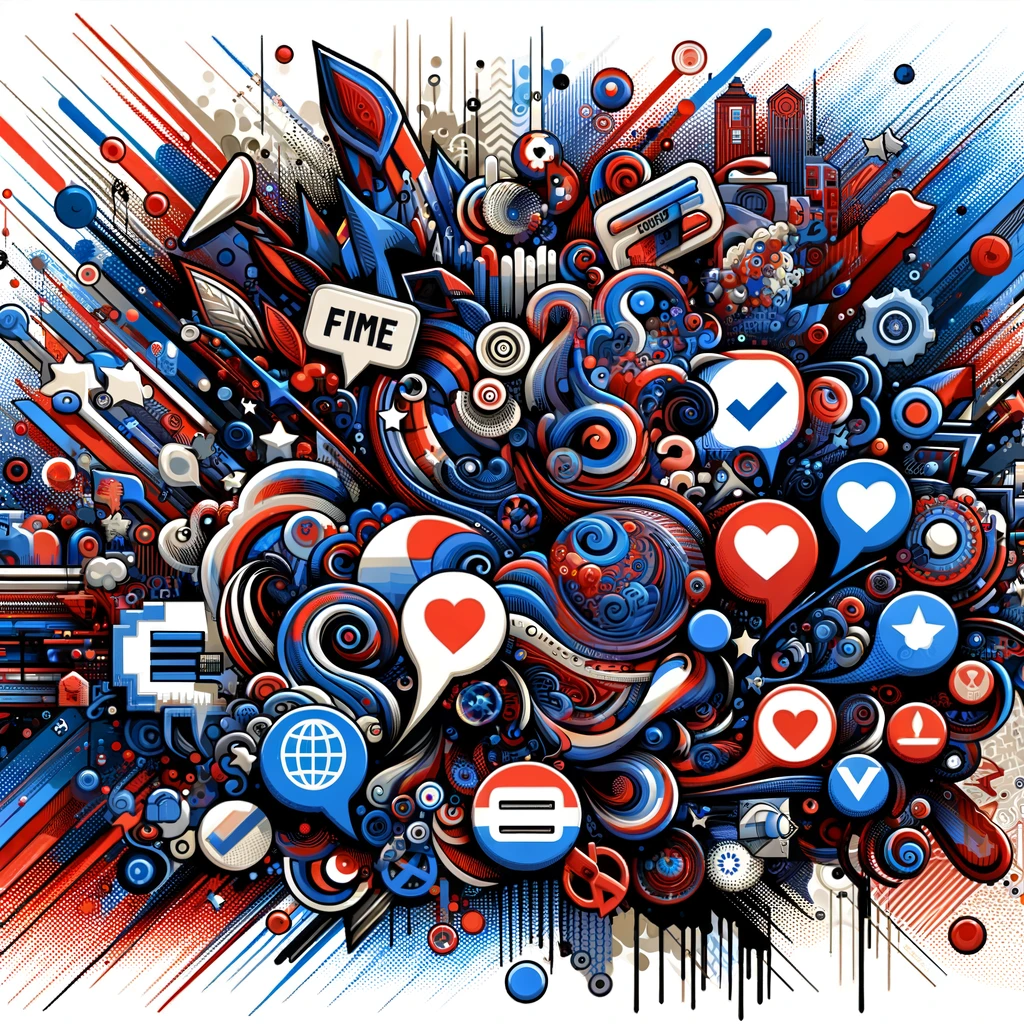Memes and Politics: A New Form of Political Discourse

In the digital age, memes have evolved from simple jokes and viral images into a powerful tool for political discourse. They encapsulate complex ideas and sentiments into easily digestible, shareable content that can spread rapidly across social media platforms. This article explores how memes have become an influential form of political communication, their role in shaping public opinion, and the ethical implications of their use in politics.
Memes in Election Campaigns
Political campaigns have increasingly recognized the potential of memes to engage voters, particularly younger demographics who are more likely to consume and share digital content. Memes can condense campaign messages into concise, often humorous formats that are more likely to be shared and remembered than traditional political ads.
For example, during the 2016 U.S. presidential election, the "Bernie Sanders Dank Meme Stash" Facebook group became a hub for pro-Sanders content, using humor and relatable imagery to mobilize supporters and spread campaign messages. Similarly, Donald Trump's campaign leveraged memes to build a strong online presence, with supporters creating and sharing content that reinforced his brand and political narrative.
Memes can also serve as a counter-narrative to mainstream media, providing a platform for grassroots political movements. They allow ordinary people to participate in political discourse and amplify their voices, often bypassing traditional media gatekeepers.
Grassroots Political Memes
Grassroots movements have harnessed the power of memes to raise awareness and rally support for various causes. Memes can distill complex political issues into relatable and engaging content, making them accessible to a broader audience. This democratization of political discourse enables marginalized groups to share their perspectives and mobilize support.
The Black Lives Matter movement, for instance, has used memes effectively to highlight issues of racial injustice and police brutality. Memes featuring powerful imagery and concise messages have played a crucial role in spreading awareness and fostering solidarity among supporters.
Similarly, climate change activists have utilized memes to draw attention to environmental issues and criticize political inaction. Memes like "Climate Change Catastrophe" or "Greta Thunberg's Call to Action" have helped to galvanize public opinion and pressure policymakers to address environmental concerns.
Memes as a Tool for Protest and Activism
Memes have become an essential tool for protest and activism, allowing activists to communicate their messages quickly and effectively. They can serve as rallying cries, symbols of resistance, or critiques of political leaders and policies.
During the Arab Spring, memes played a significant role in mobilizing protesters and conveying the demands of the movement. Images and slogans shared on social media platforms helped to unify participants and spread the message of resistance across national borders.
The Hong Kong protests of 2019 also saw extensive use of memes. Protesters used memes to criticize the government, mock political leaders, and maintain morale among demonstrators. Memes such as "Pepe the Frog," reappropriated as a symbol of resistance, became emblematic of the movement.
The Ethical Implications of Political Memes
While memes can be a powerful tool for political communication, their use raises several ethical concerns. One of the primary issues is the potential for misinformation. Memes often simplify complex political issues, which can lead to the spread of misleading or false information. This problem is exacerbated by the rapid and viral nature of meme sharing, making it difficult to control the dissemination of inaccurate content.
Another concern is the potential for memes to perpetuate stereotypes and reinforce divisive rhetoric. Political memes can be used to dehumanize opponents, spread hate speech, or incite violence. The anonymity of the internet can embolden individuals to create and share harmful content without accountability.
Furthermore, the use of memes by political campaigns and actors can blur the line between genuine grassroots movements and astroturfing, where seemingly grassroots initiatives are actually orchestrated by powerful interests. This manipulation can undermine the authenticity of political discourse and deceive the public.
Memes have transformed the landscape of political discourse, offering a new and dynamic way to engage with political issues and mobilize support. They have empowered grassroots movements, provided a platform for marginalized voices, and facilitated the spread of political ideas. However, the use of political memes also comes with ethical challenges, including the spread of misinformation and the potential for harmful content.
As memes continue to play a significant role in politics, it is crucial to consider their impact on public opinion and the quality of political discourse. By understanding the power and pitfalls of memes, we can harness their potential for positive change while mitigating their risks. In an increasingly digital world, memes will remain a vital part of political communication, shaping the way we engage with politics and society.